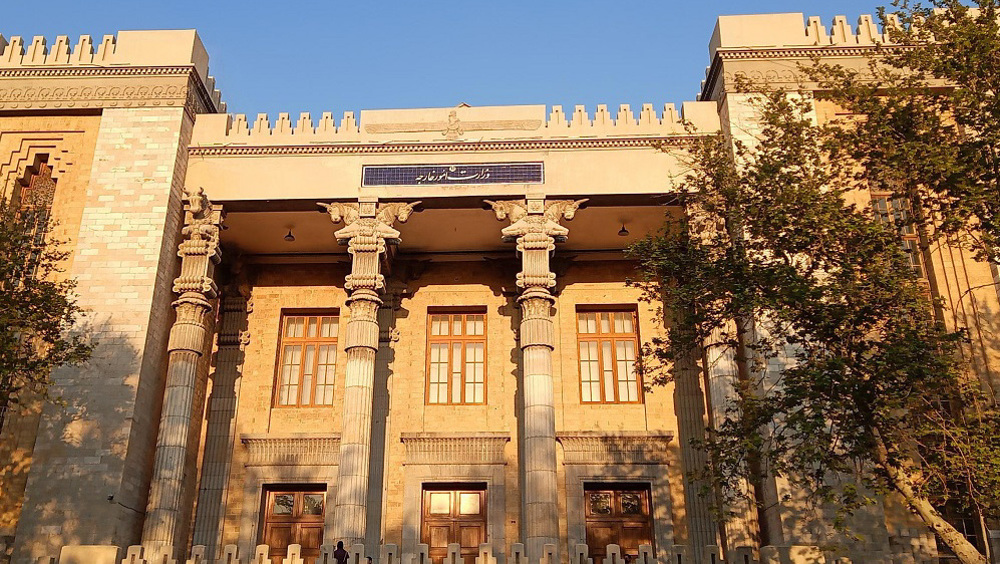Argentina’s election of Fernandez a ‘no’ to US-pushed austerity: Analyst
The victory of Argentinean opposition candidate Alberto Fernandez was a reaction to abortive austerity measures adopted by conservative President Mauricio Macri, says a political commentator in New York, arguing that the policy has previously not only failed in the Latin American nation but in all countries across the world.
Ian Williams, author and analyst at Foreign Policy in Focus, made the remark during a Monday edition of Press TV’s The Debate program while commenting on the center-left Fernandez’s victory with more than 45 percent of the votes over the conservative incumbent in Argentine’s presidential election on October 27.
Fernandez had 47.79% of the vote ahead of Macri's 40.71% with more than 90% of ballots counted on Sunday night, putting the center-left challenger over the 45% threshold to avoid a runoff and win the election outright at a time of Argentina's shaky economy and markets.
“It was a reaction of the voters to lessen the bout of austerity and the people are prepared to tighten their belts but no one is going to tighten their belts when they see other people stuffing their stomachs; it’s an all or nothing,” Williams told Press TV.
“In Argentina, the disparity was growing, the poverty was growing. So, once again it was the International Monetary Fund and the Washington consensus enforced on people and the gist of that is poor people must get poorer to make the economy better. It’s a completely unproved hypothesis; it’s been tried repeatedly in Argentina and all places but the austerity program just does not work,” he added.
The political commentator in New York denounced the austerity measures as a policy pushed by the United States and lacking "economic sense."
“The countries in the world that prospered and did well almost invariably did so by giving a finger to the Washington consensus and barring out the Chicago boys,” Williams said.
“There is no economic sense in the European Central Bank or the IMF insisting that governments must go away with public services, that they got to reduce pensions… That makes no economic sense at all. Every time there is an economic crisis caused by austerity, they come up with the answer that more austerity is necessary. Governments must cut spending,” he underlined.
Williams depicted a “bleak future” for Argentinians if such measures continued and said the country would “be painted into the corner by adhering to austerity.”
American journalist and political commentator Don DeBar was the other panelist invited to The Debate program, who described Argentina’s inflation rate and poverty as a “structural and institutional problem.”
“Regardless of whatever policy adopted at home, you end up facing a choice of bad and horrible,” DeBar added.
The poverty rate in Argentina has risen to more than 35 percent, inflation for the year to September was at almost 38 percent, while the peso has depreciated 70 percent since January 2018.
The austerity measures Macri proved highly unpopular in a country where the spending power of many ordinary Argentines has dropped dramatically.
Macri's popularity has fallen off sharply over the last year during which Argentina has been in recession.
Fernandez will assume office on December 10. On Monday, the president-elect said he will “turn the page” and take the country to a new direction amid the economic crisis.
Under Macri, Latin America's number three economy is teetering on the brink of a $100 billion debt default, its second in less than two decades.
Israel approves 126 illegal units in West Bank settlement evacuated in 2005
VIDEO | Press TV 's news headlines
VIDEO | Iran seizes tanker carrying 4 million liters of smuggled fuel
HTS forces abduct prominent American journalist Bilal Abdul Kareem in Syria
VIDEO | Iran: Beyond the majority
VIDEO | Netanyahu’s verbal escalation vs. Iran
Zelensky: ‘General consensus’ reached with US on Ukraine peace plan
Iran's Rahman Amouzad named world's 'Most Dominant’ freestyle wrestler of 2025











 This makes it easy to access the Press TV website
This makes it easy to access the Press TV website